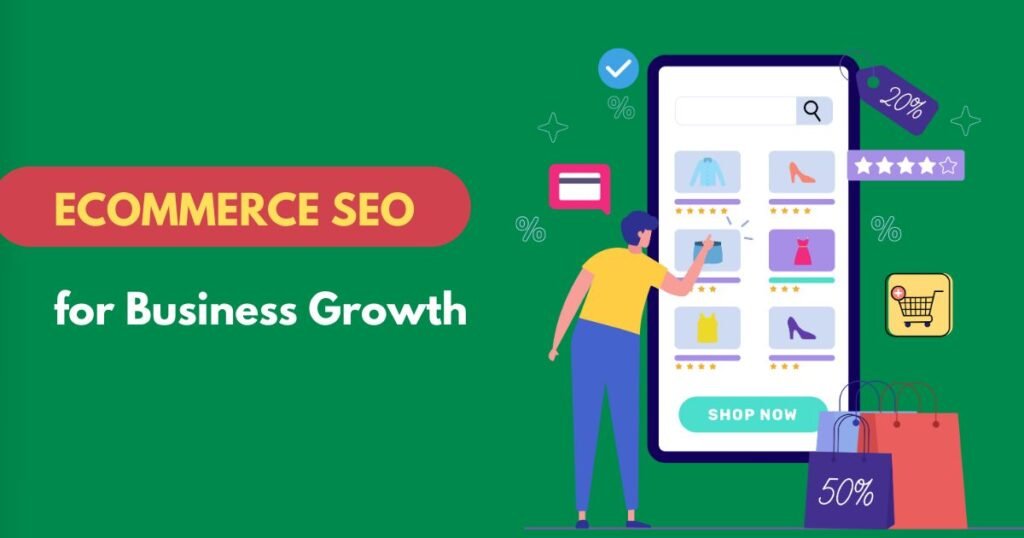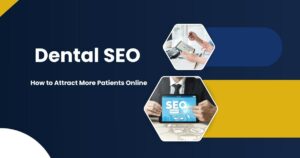Mastering Ecommerce SEO Services for Business Growth

Search Engine Optimization (SEO) is the driving force behind every successful e-commerce business. With over 2.14 billion people worldwide expected to shop online this year, the competition in the e-commerce landscape has never been fiercer. But there’s good news: by leveraging ecommerce SEO services, you can rise above the noise, improve your search rankings, and drive targeted, high-converting traffic to your store.
This guide will walk you through everything you need to know about ecommerce SEO services, including their importance, key strategies, and actionable tips to boost your online store’s visibility.
What Are E-commerce SEO Services?
Ecommerce SEO services are a specialized subset of optimization strategies focused on improving the visibility of online stores in search engines like Google or Bing. Unlike regular SEO campaigns, ecommerce SEO specifically targets the unique features of online stores, such as product pages, category listings, and filtering options.
The goal is simple: to make it easier for potential customers to find your products when they search for relevant terms online.
Effective e-commerce SEO includes:
- Optimizing product pages to rank for target keywords.
- Improving site structure and navigation for a better user experience.
- Implementing technical SEO to enhance website performance.
- Creating high-quality content to attract and convert visitors.
By investing in e-commerce SEO services, businesses can lower their customer acquisition costs (CAC) while building a sustainable pipeline of organic traffic.
Why E-commerce SEO Is Vital for Your Online Store
Here’s the thing about e-commerce businesses: no matter how fantastic your products are, they won’t sell unless people can find them. This is where e-commerce SEO comes into play. Here are some reasons why e-commerce SEO services are critical for your success:
1. Organic Visibility Means Lower Costs Over Time
Ecommerce SEO focuses on generating organic traffic instead of relying heavily on paid ads. While both paid advertising and SEO have their merits, the long-term ROI from SEO often surpasses what paid campaigns can achieve. Once you achieve a top ranking, your products are in front of potential buyers 24/7 without needing to shell out more cash.
2. Targeted Traffic for Higher Conversions
SEO doesn’t just bring anyone to your site; it attracts people who are actively searching for what you sell. By optimized targeting of high-intent keywords like “buy running shoes online” or “best organic skincare,” you can bring in users who are more likely to convert into paying customers.
3. Competitive Edge in Crowded Niches
Ecommerce is fiercely competitive, but SEO levels the playing field. If you optimize your ecommerce site while your competitors overlook it, you’ll have the advantage of ranking higher and capturing more market share—even if their brand or product is more established.
Core Strategies for Effective Ecommerce SEO
There’s no one-size-fits-all solution for SEO, as every ecommerce store has unique needs. That said, the following strategies are building blocks for an effective ecommerce SEO campaign:
Optimize Product Pages
Your product pages are the core of your online store, so they need extra attention. Here’s how to make them stand out:
- Title Tags and Meta Descriptions
Include your primary keywords naturally. For instance, instead of “Blue Shoes,” write “Men’s Blue Running Shoes – Lightweight and Durable.”
- High-Quality Product Descriptions
Engage visitors with detailed, benefit-focused content. Think about what problems your product solves and highlight that.
- Use High-Resolution Images
Each image should have alt tags, which are not only helpful for SEO but also improve accessibility.
- Add User Reviews
Google loves Unique Content, and customer testimonials are just that. Besides boosting SEO, reviews improve credibility.
Master Technical SEO
Search engines must easily crawl and index your site for it to rank well. The three main factors of technical SEO for ecommerce websites include:
- Site Speed
Online shoppers are notoriously impatient. Use tools like Google PageSpeed Insights to ensure your store loads within 3 seconds.
- Mobile Optimization
With 72% of ecommerce sales being made on mobile devices, having a seamless mobile shopping experience is critical.
- URL Structure
Keep URLs short, descriptive, and keyword-rich. For example:
– Good URL structure: example.com/women-running-shoes
– Bad URL structure: example.com/WO0fapnXY2
Leverage Keyword Research
Identify what terms and phrases your audience uses to search for products similar to yours.
- Short-Tail Keywords
These are highly competitive but can drive massive traffic (e.g., “sneakers”).
- Long-Tail Keywords
While they generate less traffic, long-tail phrases like “vegan leather bags under $100” capture more specific intent, leading to better conversions.
Use tools like Google Keyword Planner or Ahrefs to find these keywords and strategically sprinkle them into your meta tags, headings, and product descriptions.
Improve Internal Linking
Internal links guide users and search engines through your website. By linking similar or related products, categories, or blog posts, you not only help with SEO but also keep customers on your site for longer.
For example:
- On a page for reusable water bottles, link to related products like travel mugs.
- Write blog posts about “How to Stay Hydrated on the Go” and link back to relevant product pages.
Prioritize Content Marketing
Blogs and videos are powerful tools for ecommerce SEO, as they provide valuable information while driving traffic.
- Write how-to guides, such as “How to Choose the Perfect Hiking Backpack.”
- Share new product launches and behind-the-scenes content to foster brand trust.
- Use video to demonstrate products in action or answer common customer questions.
Build Backlinks
Backlinks, or links to your website from other trusted websites, are a vote of confidence in the eyes of search engines. Reach out to bloggers, influencers, or industry sites relevant to your niche to showcase your brand. For instance, offering a “guest post” or co-marketing opportunity can help secure backlinks.
Tools to Level Up Your Ecommerce SEO
Here are some tools to simplify and supercharge your SEO efforts:
- SEMRush: Great for keyword research and competitor analysis.
- Screaming Frog: Makes finding technical issues (like 404 errors) painless.
- Yoast SEO: A must-have WordPress plugin to optimize pages.
- Google Search Console: Monitors and improves your site’s performance.
- Ahrefs: An all-in-one platform for competitor research, backlink tracking, and more.
How Ecommerce SEO Services Can Help Your Store Thrive
Running an ecommerce store is already a full-time job. Managing the nuances of SEO on top of that can feel overwhelming. Ecommerce SEO services take that weight off your shoulders.
By hiring SEO experts, you gain access to:
- Specialized knowledge in technical and creative SEO.
- Data-driven strategies tailored to your niche.
- Comprehensive reporting to track your progress.
When you partner with experienced teams, you’re positioning your business for scalable, long-term growth.
Take the First Step Today
Whether you’re building your store’s foundation or looking to refine your strategy, ecommerce SEO is a game-changer. By implementing these strategies and tools, you can improve visibility, create a better user experience, and drive lasting growth.
Not sure where to start? Reach out to trusted SEO service providers who can help your ecommerce business thrive in an increasingly competitive market.








